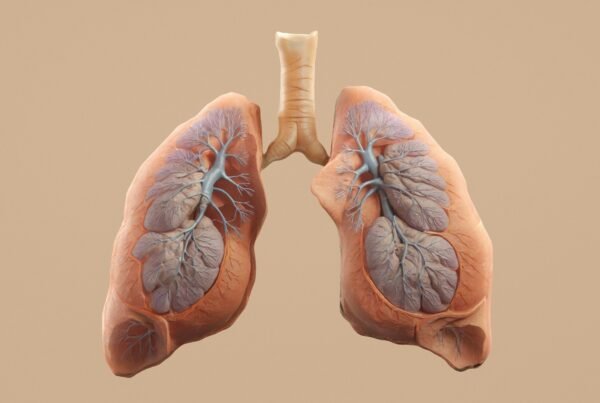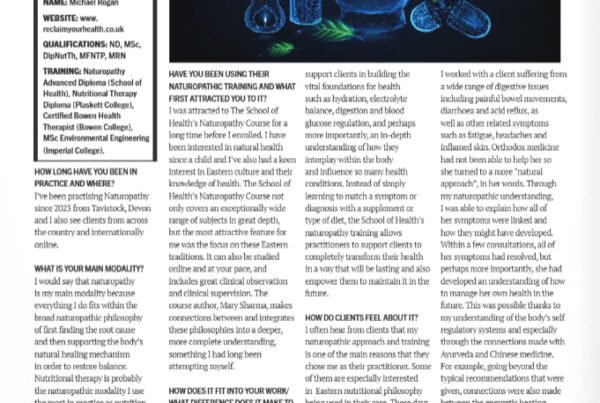At the time of writing in 2025, weight loss medication is hitting the mainstream. Many people who have struggled with their weight are turning to the various injections now available, such as Mounjaro and Wegovy, hopeful that they finally have the solution to losing stubborn weight. However, these medications are not without their issues. Even for those who do not experience immediate side effects, the way that the injections work (like most medications), tends to work against how the body should ideally be operating, thus in many ways worsening the root cause of the weight issue and potentially leading to other health issues in the future. These medications affect the function of the gall bladder, pancreas, gut microbiome health and the digestive system as a whole. In this series of articles, I will cover some natural alternatives to weight loss jabs which are more aligned with how the body should function for optimal health.
While weight loss jabs focus on reducing the intake of calories through a reduction in food intake, I would argue that this is the wrong focus. The reason that people are overweight, in the vast majority of cases, is not due to how much that they eat. While calorie restriction can reduce weight, it tends to be too difficult to maintain over a long period of time and the body will realise that food is scarce and make adjustments to metabolism in order to burn less.
Far more important is what you eat, when you eat and how you eat. Paying attention to these also helps you to become healthier overall, reducing the risk of the various diseases connected to being overweight such as diabetes and cardiovascular problems. I’ll cover each of these three factors and how you can use the information to lose weight without medication in this series of articles, continuing today with “When You Eat”.
Part 2: When You Eat Matters
Perhaps surprisingly, the timing of meals and snacks can have a significant impact on weight gain or loss. One of the issues with the calorie restriction method is that hunger eventually causes the person to slip up and binge on foods that they shouldn’t, often in the evening or at night, which are probably the worst times to eat. Hence the appeal of the weight loss medications which suppress the hunger. These jabs do have significant negative side effects which are covered in another article (click here). In the previous article in this series, I covered how changing what you eat rather than restricting intake can be more effective and this would assist in reducing the cravings to binge when willpower is low (if you eat different things, you can eat as much as you like and still lose weight!). Now I’m going to cover a little about when you should eat.
When Should You Eat to Lose Weight?
When digestions is strongest! This was known thousands of years ago – the Eastern medical traditions of Ayurveda and Chinese medicine understood that digestion was most active at certain times of the day, mostly in the morning between 7-9am and around the middle of the day. If food is eaten at a time when the digestive system is not naturally active, such as in the evening and night, it is thought that the body would not be able to properly process and assimilate the nutrients in the food. This can lead to toxicity being stored in the body and an increase in weight. As is often the case, modern scientific research is now confirming such theories. For example, a Harvard study showed that food eaten outside of daylight hours disrupted the circadian rhythm of the body, having knock on effects on metabolism, appetite regulation and the gut microbiome and ultimately resulting in weight gain. So my suggestion would be to focus on eating during day light and have your biggest meals in the morning and around midday. A smaller meal in the evening would be advised, and this might need to be earlier in winter when the sunset is earlier.
In addition, decreasing the eating window, the time in which meals are taken, is thought to be an effective technique for improving health in a variety of ways, including for weight loss. This involves restricting the time between breakfast and dinner and avoiding late night snacking. If you typically eat breakfast at 7am and dinner at 7pm, you might look to have an earlier dinner or a later breakfast, whichever best fits into your daily schedule, although an earlier dinner might be optimal per the above. This gives the body an extended period of time over night to allow it to fully digest the food you have eaten and then have a break from digesting food, at which time other maintenance tasks in the body can be carried out. In this way, the health of the body can be expected to improve. One of the most relevant effects for weight loss of restricted eating windows is an improved sensitivity to insulin, meaning that less insulin is needed to be released by the pancreas at meal times and therefore less fat is stored in the body (a simplified view of a complex process!). But like all approaches for weight loss that I advocate, the method of restricting the eating window will support positive changes in the general health of the body too.
Taking this further, periods of fasting could be used to extend the window of time when the body is not eating. But it would be advisable to start this slowly and only restrict your eating time significantly if you are under the care and observation of a suitable healthcase professional. This is particularly important if you have issues with blood sugar regulation.
Summary
While this is very much a surface level overview of the topic, if you only focus on restricting the time window in which you eat, you will start to see results. Ideally, this should be combined with changing what it is you are eating, which is covered in the previous article. For the other parts of this article series, please click here for the discussion of What You Eat and here for How You Eat.
If you would like personalised guidance and support on your journey to lose weight in a natural way, consider consulting with me. You can view my consultation and package options by clicking here.




